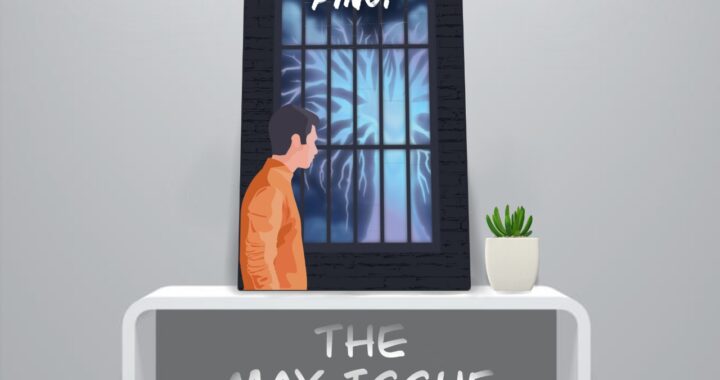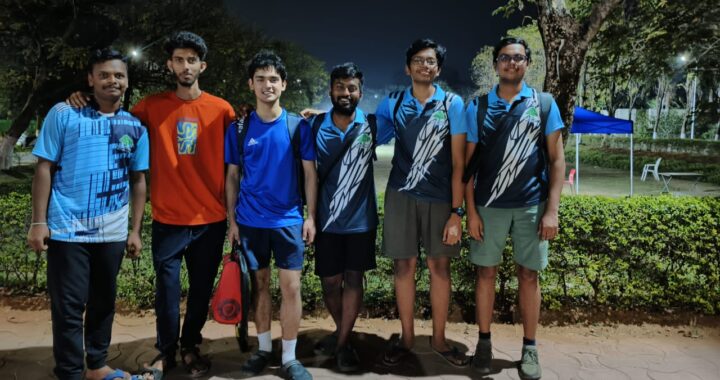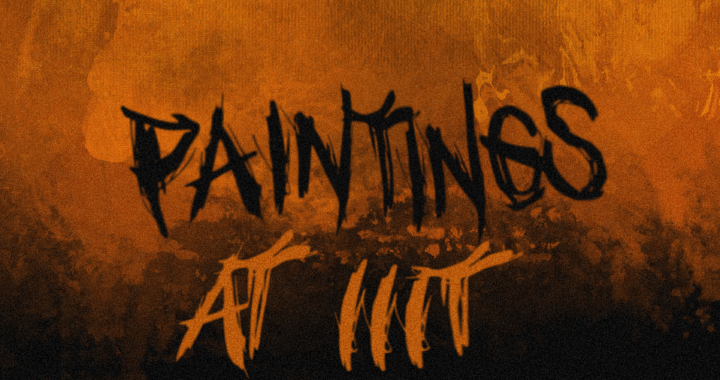Editorials – April 2018

The Mystery of the Many Documents of IIIT
Documents are by nature an elusive entity. All students would remember being handed over that heavy “book” of documents when they took admission. Most students throw it in a corner (or trash bin) without a first look. Usually, precedents from experience (trickled down from senior students) are considered as reference points when it comes to possible actions, which makes sense in a community. Of course, there are documented rules, but the implementation is often relaxed to have practical significance.
In the recent Intranet overhaul, and the implementation of the new IMS, a lot of these documents have been revised, and suddenly brought into implementation. One such sudden implementation was the PT probation, that lead to the infamous email squabble, that had to be settled by temporarily withholding that implementation. It has been speculated before that this was simply an outcome of not involving students in the implementation process in the first place.
As mentioned earlier, the precedents from experience are usually what survive in the minds of the students, rather than the laxly implemented documents. Hence, in moving to newer systems and reviving old rules, the institute must also keep in mind the practical precedents that have been set, and move accordingly.
Besides the revisions, several new documents (PT credit, Institutes Committees Structure & Responsibilities among others) have also been uploaded. The laxness in drafting these new documents has already been scrutinized in a previous Ping article (Commentary on Disciplinary Committee Decisions, Ping Nov ‘17). The latest PT credit document also met with scrutiny on the Facebook Life@IIIT-H group for being incomplete; inadequately accounting for health contingencies, for instance. Again, the lack of student involvement in drafting these documents hurts the administration’s efforts. But here, there’s also apparent neglect from the administration’s side in not being thorough in their effort.
The vacant disconnect between the documents and the practicality of implementation is only going to create more hassle than convenience (as documents are actually supposed to), and only more allegations of “whimsical administration” at IIIT.
Student bodies on campus
Recently, there has been very explicit reproval of the college administration for not involving students in many decision-making processes. However, as has not been made so explicit, some of the important student bodies have proved sluggish and uninterested in being involved in the process. Ping has made some of this explicit with the already-published piece on the inactivity of the SACB (Everything’s Not Right with the SACB, Ping Mar ‘18), and The Induction Schedule in Review article in this issue that mentions how many of the first year students were unsatisfied with the Apex. A large part of this criticism is directed towards the current membership of these student bodies.
The existing members nominate future members for most of these important student bodies, including the SACB and the Apex. There have been allegations of gross nepotism, and we can’t deny that there is a certain degree of truth to these rumours. In the past, this selection process has worked as the members put responsibility above nepotism, but the current members have clearly failed to do so, rendering the student bodies in a very bad place. This criticism has been laid on both the SACB and the Apex.
With the revisions in curriculum as well as the admission process, the student bodies has even greater liability. It’s high time that the members rise above their biases, and start making responsible and mature decisions. Either that, or a revised selection process with greater scrutiny should be brought into place. If the situation continues the way it has, we will have a very regrettable disconnect between the administration and the students, which will make life miserable for all.
The Revised Admission Process for Dual Degree students
In its 10-year revision process, the college has now revised its admission process completely. All the dual degree students will now be tested based on a separate, college-conducted exam and interview process, rather than being admitted through the JEE exam. There has been a lot of excitement over this, with hopes that the student intake would improve by large, and the insecurities and misunderstandings with dual degree programs can also be addressed. However, this is also very likely to affect the student diversity in the college, which already suffers with the lack of reserved classes.
The JEE exam is a popular exam, taken by students from the smallest towns. This new admission process will likely attract only students from bigger cities that have better outreach. The exam centers themselves are limited to some cities. The only efforts in extending this outreach so far seem to have been the YouTube videos, and other online efforts. However, this is certainly insufficient in reaching out to the smaller cities, something that the JEE exam easily accomplishes.
Whether this is an acceptable trade-off in the end, however, is arguable. If we deem it acceptable, we risk being considered “elitist”, and also missing out on some bright sparks that may have found fire at IIIT. If we deny it though, we still remain with the problem of “research at gunpoint”, where the students have naively taken admission, and the institute has granted research admissions to students with not the slightest inclination and/or aptitude for research. Perhaps, a middle ground will eventually be achieved.
Saswata Departs
Nothing is more apparent in college than the sudden disappearance of Professor Saswata Shannigrahi from college – our mailboxes can tell us as much. While several people complained that the mails he sent were spam, and Ping itself has criticized his methods in the past, he was inarguably a popular voice for the students, raising many issues considered important by the students but completely sidelined by other faculty members. While we would not like to add more fuel to the many rumours on why he left, we do hope that some of his suggestions may be taken up for discussion in the Parliament, and possibly implemented by the college.
A Case for Introduction of more Literature courses
Scouring through the old course offerings in the IIIT archives seems to indicate that the quality of humanities courses in our college has seemingly been a roller-coaster ride. While at some point we had such exciting courses as “Readings from Science Fiction”, we also had a semester with the only humanities course offerings being performing arts or related courses. The most recent major change in the humanities course offerings came in Monsoon 2016, with many courses on social sciences being added. However, following further revisions, there seems to be an abundance of pure social science course offerings.
In our discussions with students from other colleges, some of the most exciting humanities courses for them have been literature courses, foreign language courses, or courses that have some interdisciplinary elements. The only literature course offerings at present have to do with American Classics, Shakespeare, and Hindi Literature; categories that would seem dull to most students. It would be very exciting to have modern literature courses in the college, and perhaps even some courses on movie culture or film studies; activities which are unfortunately only limited to clubs right now. Such activities when taken up academically get all the more fascinating.
Introduction of such courses is not only progressive, but should also put an end to the animosity that some students feel towards humanities courses. Literature, arts, languages; these are meant to be enchanting potions, not another forced pill for the students to swallow.

 Editorial – August 2022
Editorial – August 2022  Editorial – May 2021
Editorial – May 2021  Editorial – August 2020
Editorial – August 2020  Editorial – March 2020
Editorial – March 2020  Statement on Editorial Policy
Statement on Editorial Policy  A perspective on sports in IIIT
A perspective on sports in IIIT  Paintings of IIIT
Paintings of IIIT  The Tale of Jagruti
The Tale of Jagruti  Cleaning up the Mess?
Cleaning up the Mess?